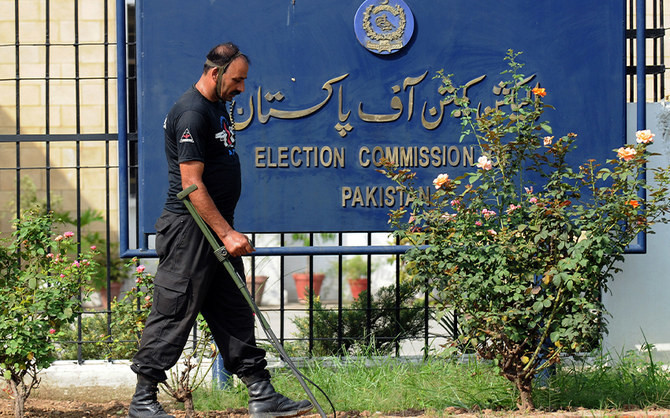
In an apparent bid to avert controversy, the Election Commission of Pakistan (ECP) has decided against using the Results Transmission System (RTS) and will instead operationalize the Result Management System (RMS) for the coming elections in Punjab and Khyber Pakhtunkhwa.
The election watchdog has assigned the task of modifying the RMS to a private firm that will prepare it within two months. Before finally putting it to use for the polls, a pilot test will be conducted to evaluate its feasibility.
The ECP has already kicked off the training of its employees to better acquaint them with the new system.
It is pertinent to mention that RTS, an android-based application developed by the National Database and Registration Authority (Nadra) for prompt disbarment of results from the polling station to the district and central results system, had crashed during the 2018 general elections.
When all of a sudden the whole process came to a standstill, the political parties cried foul as the debacle became the main talking points into rigging allegations.
Difference between RTS, RMS
RMS is a desktop computer application installed at the offices of returning officers (ROs).
According to ECP’s website, It is an electronic form-based software where data entry operators (DEOs), reporting to the RO can enter data like names of candidates, number of registered voters, name and number of polling stations, number of votes cast to each candidate and can quickly generate draft forms that used to take hours to fill by hand in the past,” says and ECP introduction of the application.
The RMS is offline software installed in a computer at the RO office that also has a trained data entry operator. The RO receives results from presiding officers on Form 45.
After receiving results from all the polling stations, RMS is instructed to generate Form 47 which is a consolidated result of that constituency. The Form is subsequently faxed to the ECP that uploads it on its website.
On the other hand, the RTS is an entirely different system that transmits Form 45 from polling stations to RO offices and the ECP Secretariat using a smartphone and around 170,000 POs and other officials had been trained in the month of July to use this mobile app.
Section 13 of the Elections Act states: “the Commission shall establish a transparent results management system for expeditious counting, tabulation, compilation, transmission, dissemination and publication of results in the official gazette and on the website of the Commission.”
It further says: “The PO shall immediately take snapshot of the result of the count and, as soon as connectivity is available and it is practicable, electronically send it to the Commission and the RO before sending the original documents under Section 90.”
ECP receives Rs18bn for polls
Meanwhile, in a related development, the federal government provided Rs18 billion to the ECP to better equip it to hold the general elections in the country.
The ECP had demanded the funds for pre-election preparations to do away with difficulties in terms of logistics. The poll supervisory body will utilise the amount for elections in Punjab and K-P.
However, the ECP has decided to send a new estimate of election expenses as due to separate elections for two assemblies, expenses on general elections have increased by more than Rs10 billion.
The ECP has asked the government for Rs57 billion to fund the next general elections. In the current fiscal year, Rs27 billion of this sum will be received.
The remaining Rs20 billion will be paid to the commission during the upcoming fiscal year.


















COMMENTS
Comments are moderated and generally will be posted if they are on-topic and not abusive.
For more information, please see our Comments FAQ